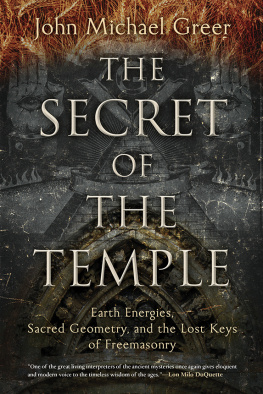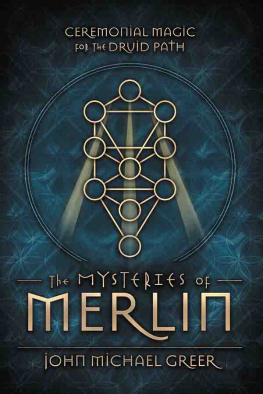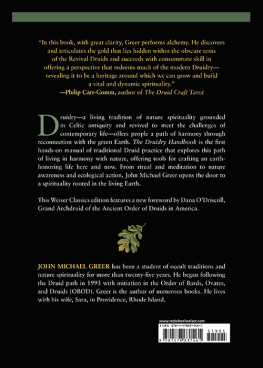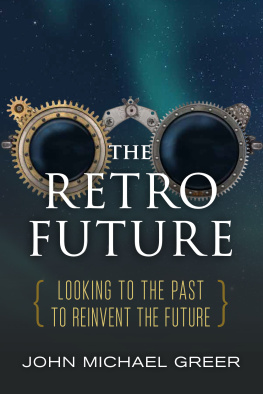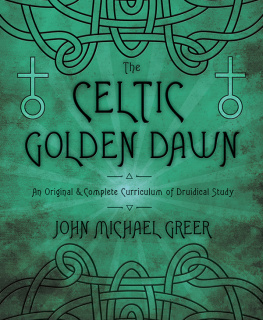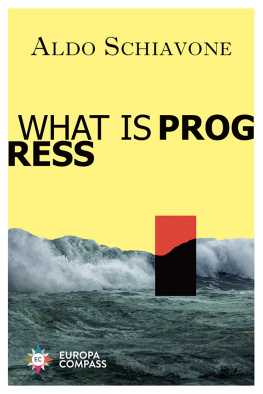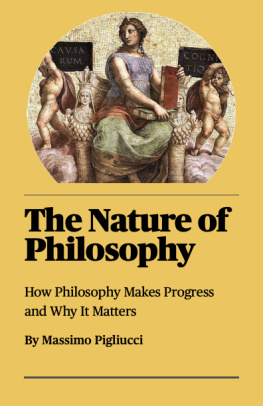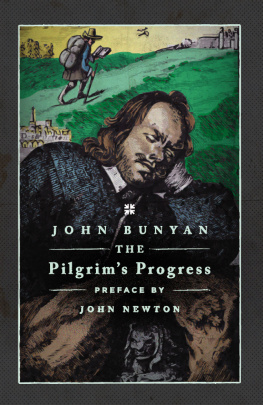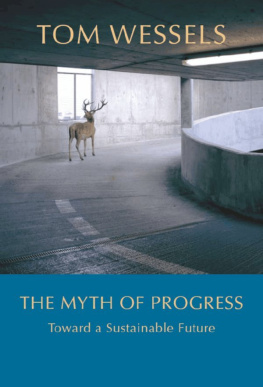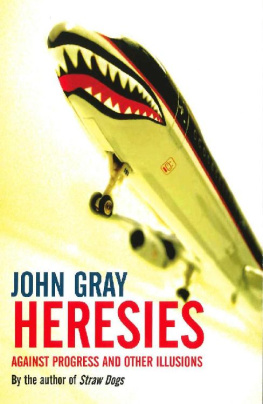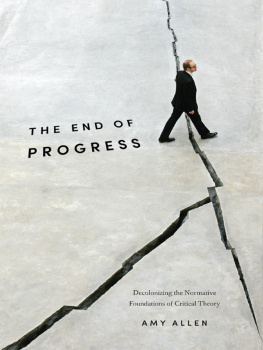Praise for
AFTER PROGRESS
After Progress is a bracing introduction to John Michael Greers big-picture thinking grounded in an all-too-rare knowledge of history, ecology, and evolution. Environmentalists and social activists will need to take courage in facing the raw realities that Greer reveals. But on the other side of grief comes gratitude for the chance to re-shape our activism in ways that might actually count.
Michael Dowd, author, Thank God for Evolution and host, The Future Is Calling Us to Greatness
It would be nice if there were a detox center for bad ideas; you know, the kind where you pay a years living wage for a week at a posh spa, replete with infinity pool, gestalt therapy and the off-chance of a celebrity roommate? Until then, After Progress may have to do. It is everymans self-help guide to unlearn just about every bad thing we like to teach our children but really shouldnt.
Albert Bates, author, The Post Petroleum Survival Guide and The Biochar Solution
Greers extremely insightful After Progress takes the reader above the fray, and gives a birds-eye-view of the civic religions that have tunneled throughout societies. It will be difficult for the reader to return from that view and fail to recognize our own civic religion, as well as the course its paving for itself.
Steven Dillon, author, The Case for Polytheism
After Progress is a solid and necessary look at our Western belief in the inevitability of progress and why we need to adjust to the reality of a finite world. Its a thought-provoking book and provides a cautionary tale about human illusions of domination over nature and scientific rescue from our excessive consumption of natural resources that we ignore at our peril.
Paul Kivel, educator, activist and author, Living in the Shadow of the Cross
Our societys worship of the idea of progress constitutes a formidable roadblock to successful adaptation to what our climate-changed, resource-depleted future has in store. John Michael Greer doesnt just identify that roadblockhe dynamites and bulldozes it, using his characteristically sharp wit and expansive knowledge of cultural history.
Richard Heinberg, author, The End of Growth and Afterburn
After Progress invites us to challenge every assumption we have about the Western obsession with perpetual growth and its driving myth of progress. John Michael Greer writes with a wit and clarity that masterfully unpicks the historical and psychological complexities of our political and social landscape, exposing the dangerous blind-spots of our collective perceptions and challenging us to step beyond them.
Philip Carr-Gomm, author, Druid Mysteries, The Druid Way and Sacred Places.
People say John Michael Greer is incredibly smart and that he really knows a lot; some even say hes outrageous uh, excuse me, provocative and bold. But were in extreme trouble and maybe we need extreme statements to wake us up. I would say that in After Progress, Greer lives up to his reputation. You want provocative and bold? Its here.
Cecile Andrews, author, Living Room Revolution, Less Is More, Slow Is Beautiful, and Circle of Simplicity


Copyright 2015 by John Michael Greer.
All rights reserved.
Cover design by Diane McIntosh.
Cover image: iStock Lee Yiu Tung. Crane hook illustration MJ Jessen
Printed in Canada. First printing February 2015.
New Society Publishers acknowledges the financial support of the Government of Canada through the Canada Book Fund (CBF) for our publishing activities.
Paperback ISBN: 978-0-86571-791-6
eISBN: 978-1-55092-586-9
Inquiries regarding requests to reprint all or part of After Progress should be addressed to New Society Publishers at the address below. To order directly from the publishers, please call toll-free (North America) 1-800-567-6772, or order online at www.newsociety.com
Any other inquiries can be directed by mail to:
New Society Publishers
P.O. Box 189, Gabriola Island, BC V0R 1X0, Canada
(250) 247-9737
New Society Publishers mission is to publish books that contribute in fundamental ways to building an ecologically sustainable and just society, and to do so with the least possible impact on the environment, in a manner that models this vision. We are committed to doing this not just through education, but through action. The interior pages of our bound books are printed on Forest Stewardship Council-registered acid-free paper that is 100% post-consumer recycled (100% old growth forest-free), processed chlorine-free, and printed with vegetable-based, low-VOC inks, with covers produced using FSC-registered stock. New Society also works to reduce its carbon footprint, and purchases carbon offsets based on an annual audit to ensure a carbon neutral footprint. For further information, or to browse our full list of books and purchase securely, visit our website at: www.newsociety.com
Library and Archives Canada Cataloguing in Publication
Greer, John Michael, author
After progress : reason and religion at the end of the industrial age / John Michael Greer.
Includes bibliographical references and index.
Issued in print and electronic formats.
ISBN 978-0-86571-791-6 (pbk.).--ISBN 978-1-55092-586-9 (ebook)
1. Progress. 2. Reason. 3. Religion. I. Title.
HM891.G74 2015 303.44 C2015-900790-9
C2015-900791-7

Contents
T HE RISING SPIRAL OF CRISIS that besets the industrial world today is a complex matter far more complex than the comfortable clichs beloved by politicians and the media might suggest. Behind the turbulent surface of politics and economics, the ongoing movement of nation after nation toward failed-state conditions and the widening gap between the general prosperity that the worlds developed economies are supposed to yield and the far less evenly distributed results that they actually manage to produce, deeper patterns are at work: above all, the disastrous mismatch between political and economic ideologies that demand endless economic growth and technological expansion, on the one hand, and the hard limits of a finite planet on the other.
Still, theres another dimension to the crisis of our time that goes deeper still. The ideologies just mentioned, after all, didnt show up out of nowhere one fine day, springing full-blown from the head of Adam Smith like Athena from the head of Zeus. Nor, for that matter, are they hardwired into the human psyche; there have been any number of human societies that didnt share our obsessions on that score. The ideas that have guided the modern world into its head-on collision with ecological reality have a history; they emerged at a particular point in the past, and their roots can be traced far back into the soil of human experience.
Next page

